Whether you’re cooking seafood or baking a fruit tart, lemon juice can add a lot of freshness and flavor to a meal. But what do you do if you’re out of lemons? Or even worse, allergic? Don’t worry. Plenty of lemon juice substitutes can bring similar tart tones to dishes.
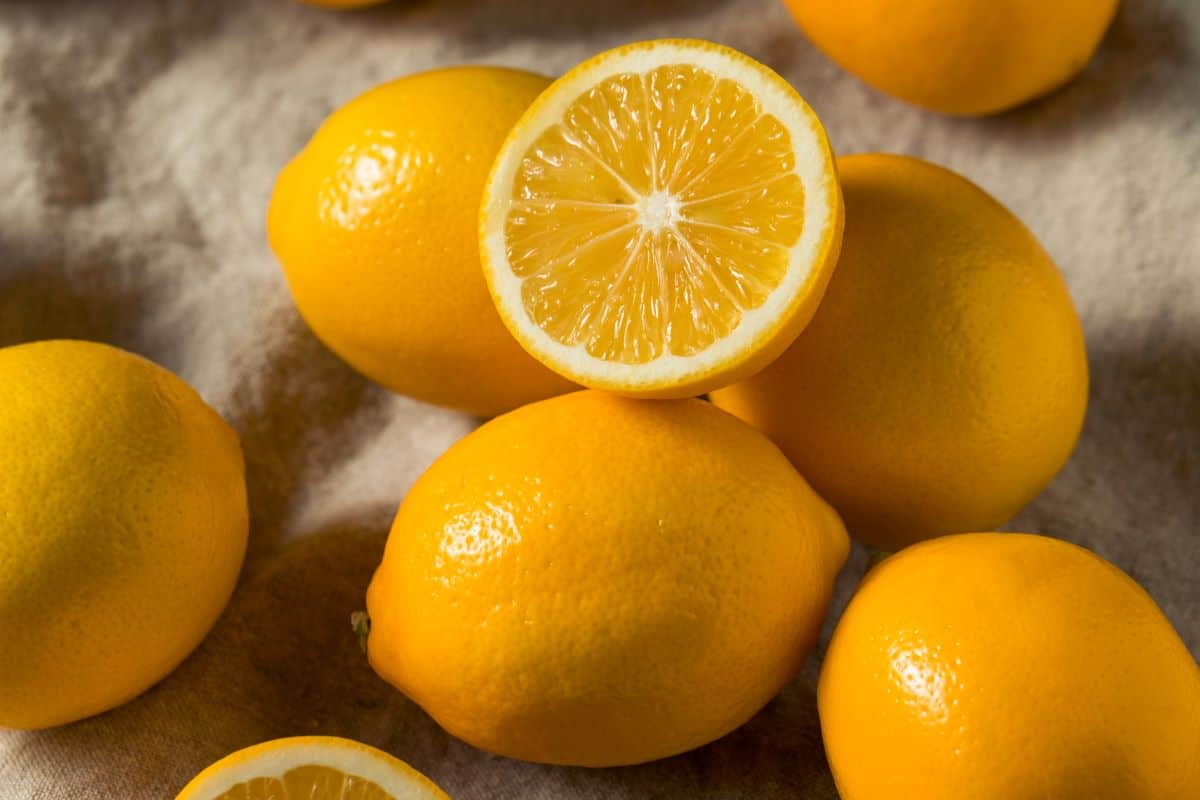
What is lemon juice?
Lemons are bright yellow citrus fruits that are delightfully juicy. Just a squeeze of lemon juice can brighten up savory and sweet dishes. Though lemons have a sour flavor, their juice is slightly sweeter than lime juice, making lemon juice a key ingredient in desserts and drinks.
Lemon juice is refreshing and a popular option for making richer dishes and jellies. To find the juiciest fresh lemons, look for lemons that feel a bit heavy. The skin should also be firm but not hard. These bright fruits are best during late winter to early spring.
Reasons for using a lemon juice substitute
There are many reasons you may want to substitute lemon juice, but here are the top reasons:
- Citrus allergies: Some people have citrus fruit allergies. Lemon juice can cause itching, swelling, and burning in some people. If you have a citrus allergy, use lemon juice alternatives!
- Migraines: This may surprise you, but lemon juice can causeme peopl migraines in soe. Lemon is high in an amino acid called tyramine. If you consume too much lemon juice, it can lead to migraines.
- Acid reflux: Like most citrus fruits, lemon juice is acidic. Acidity can cause stomach issues like acid reflux or heartburn. Less acidic substitutes for lemon juice can help prevent this.
- Tooth decay: Our teeth are sensitive, especially to foods high in acid. Eating a lot of citrus can affect tooth enamel, leading to cavities. Though most substitutes for lemon juice have acidity, some don't damage teeth as much.
What’s the difference between fresh lemon juice and store-bought lemon juice?
Store-bought lemon juice usually comes in two forms: drinking and concentrated. Bottled lemon juice usually contains water, sugar, and preservatives. It is great for drinks or cocktails but not for cooking.
Concentrated lemon juice, or lemon extract, is a versatile store-bought alternative to lemon juice. It boasts the classic lemon flavor profile and can be used in a variety of dishes and drinks. Its potency requires dilution when used.
However, fresh lemon juice will taste best! Fresh lemons don’t have additional ingredients, so you always know what’s in your food.
Best lemon juice substitutes
1. Lime juice
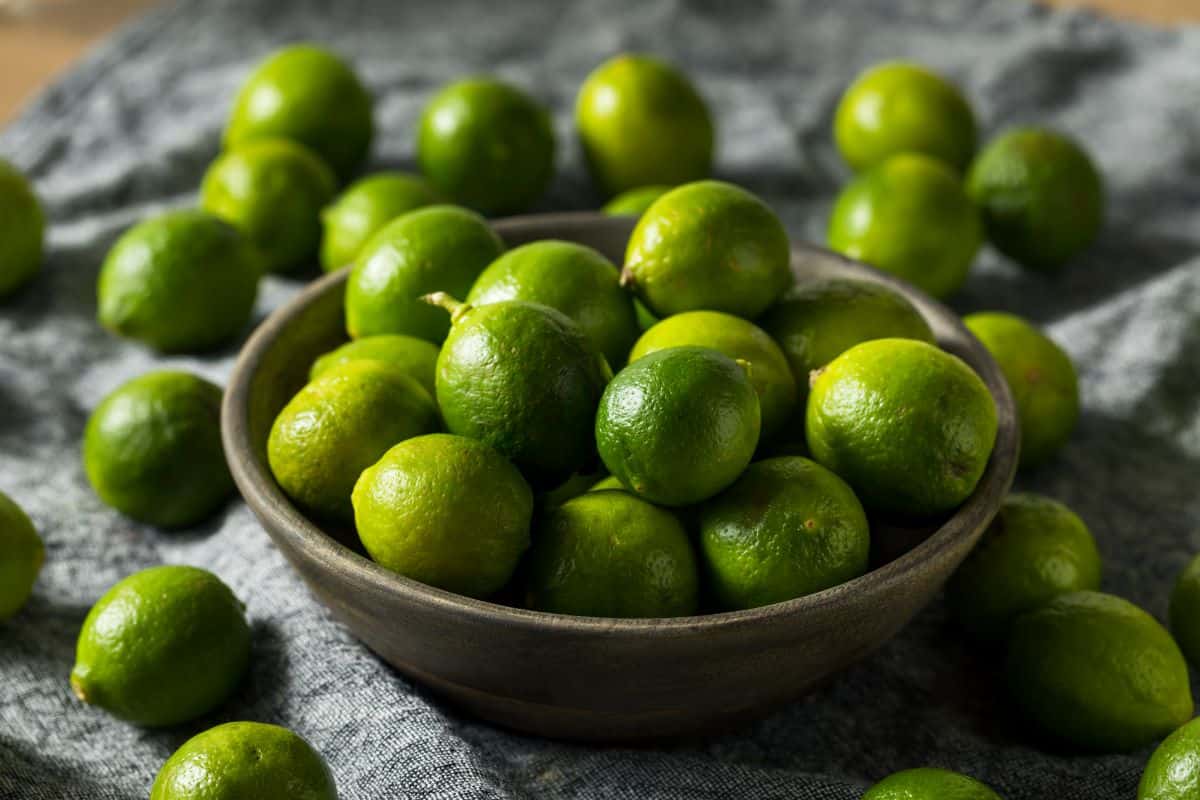
Lime juice is one of the best lemon juice substitutes. Both fruits have similar pH levels, so you get the same effect. Lime juice is tart and has a similar taste to lemon juice, making it the best overall substitute. It is slightly more bitter than lemon, but it will still give a lovely citrus note to most recipes.
If the recipe calls for fresh lemons, aim to use lime juice to get the closest citrusy flavor possible. However, if you like the bitter flavor of limes and are out of limes as well, substitute lime juice for grapefruit juice.
Lime juice is a fantastic lemon juice alternative in cooking, preserves, and jams. Replace lemon juice with an equal amount of lime juice.
2. Orange juice
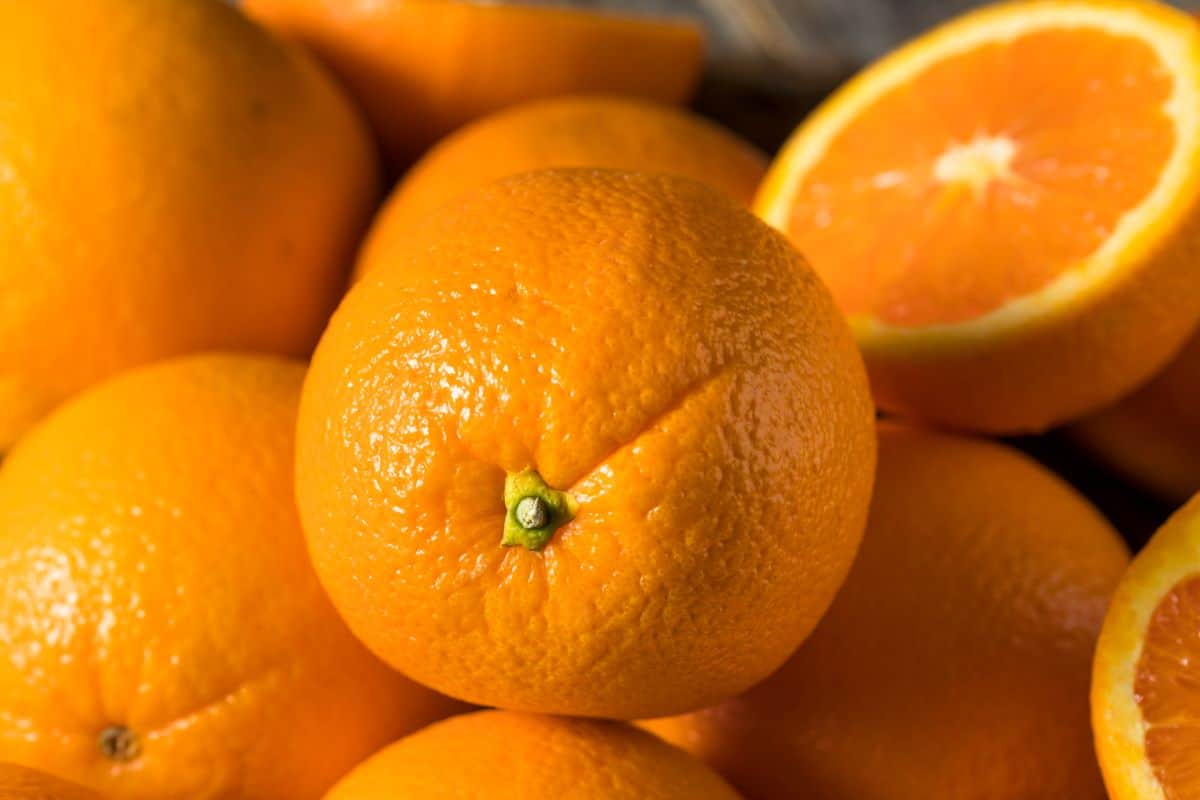
Oranges are another great citrus fruit that can be used as a lemon juice alternative. The acidity of orange juice emulates lemon juice, so it’s fantastic in dishes where you need acidity.
However, orange juice shouldn’t be used where lemon is the main focus of the recipe as oranges are sweeter. Using orange juice in dressings, garnishes, or sauces is better.
Similar to lime juice, orange juice can be substituted with a 1:1 ratio in most cases.
3. Rice Vinegar
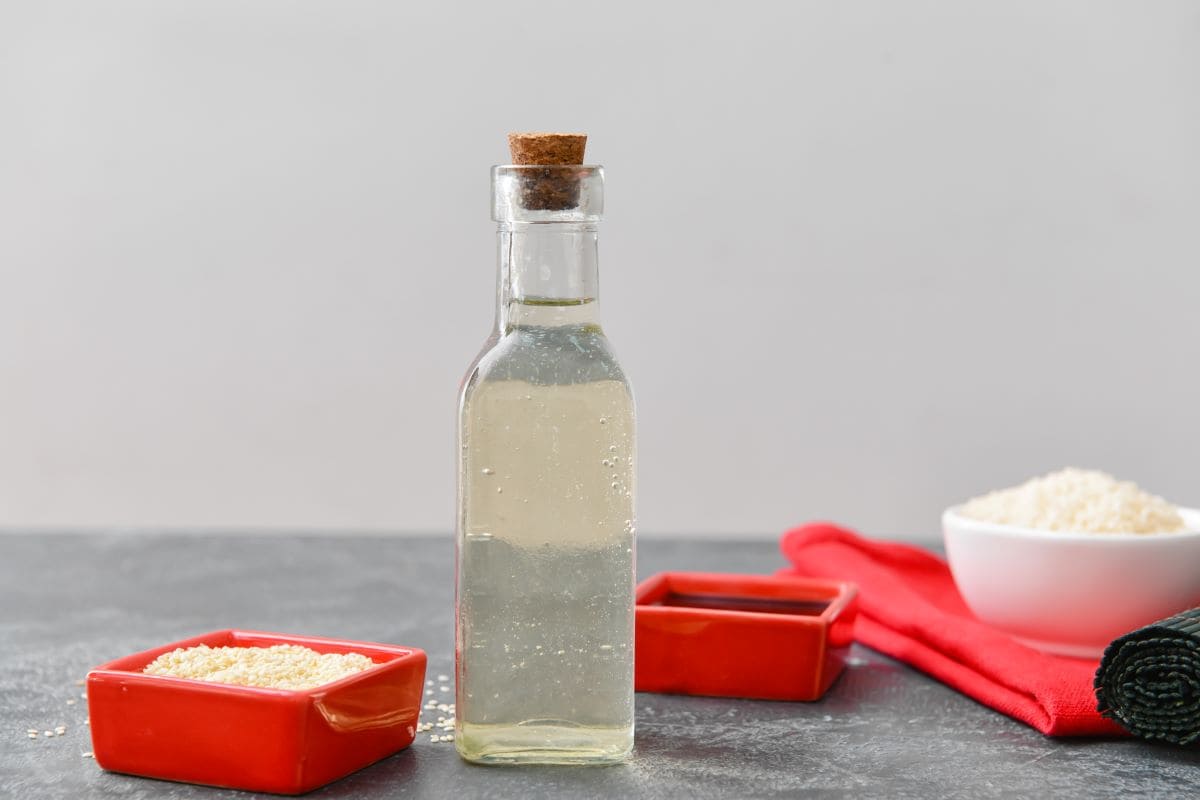
This may sound surprising, but rice vinegar can sometimes be a fantastic substitute for lemon juice. Though rice vinegar has a strong taste, it has a similar acidity and freshness to lemon.
Rice vinegar is one of the better kinds of vinegar to substitute for lemon juice as it has a sweeter, milder taste than its counterparts (i.e., apple cider vinegar). It’ll be less noticeable that you used rice vinegar instead of lemon juice!
This is one of the best substitutes for lemon juice for those with citrus allergies.
This is a lemon juice alternative that is best used in rich dishes and soups. Replace lemon juice with equal amounts of rice vinegar.
4. Citric acid
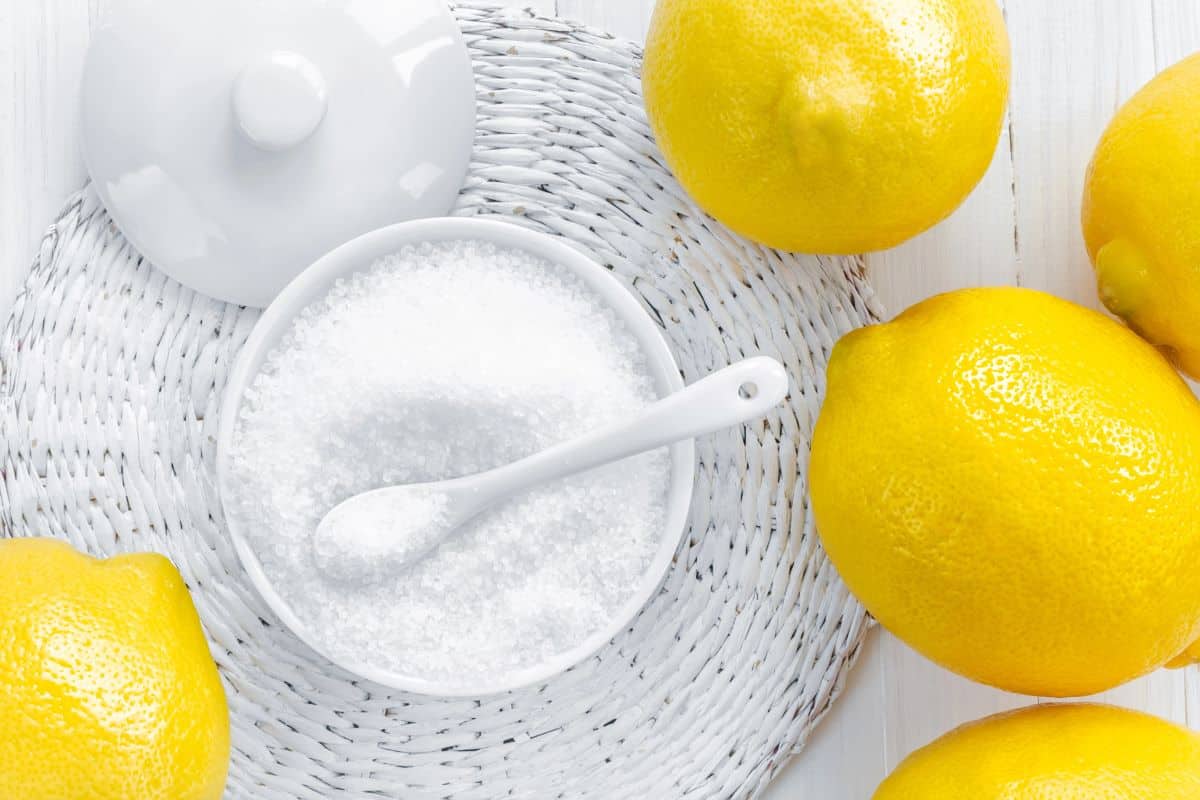
Citric acid is a naturally occurring acid, sometimes concentrated in a powder. This is what makes lemons, limes, and other citrus fruits tart!
Citric acid often comes in a powdered form, so use it as a substitute for baking. Though powdered citric acid works best in baking cake, it can also be a helpful substitute for lemon juice in dressings and marinades.
Mix one teaspoon of citric acid with ½ cup of water to substitute ½ cup of lemon juice. It’s a very strong powder, so be careful not to use it too much.
You may need additional liquid in the recipe since it is a dry ingredient.
Would you like to save this?
5. Lemon zest

Whenever you have lemons, make sure to zest and freeze them as well! Lemon zest is a concentrated source of citrus notes and can bring that lemony taste when you’re out of lemon juice.
Frozen or dried lemon zest can be a good substitute in dishes where lemon is the main ingredient.
Lemon zest does not have liquid, so increase the amount of liquid in the recipe. Otherwise, you’ll end up with a dry lemon dessert!
6. White wine

White wine has many notes similar to lemon juice, especially its acidity. It brings the same brightness to savory dishes that lemons do. Its acidity intensifies the other flavors in the dishes while making them less heavy.
White wine is best used in recipes where lemons are not the star of the show. Deglaze the pan with white wine instead of lemon juice with a 1:1 ratio.
7. Lemon extract
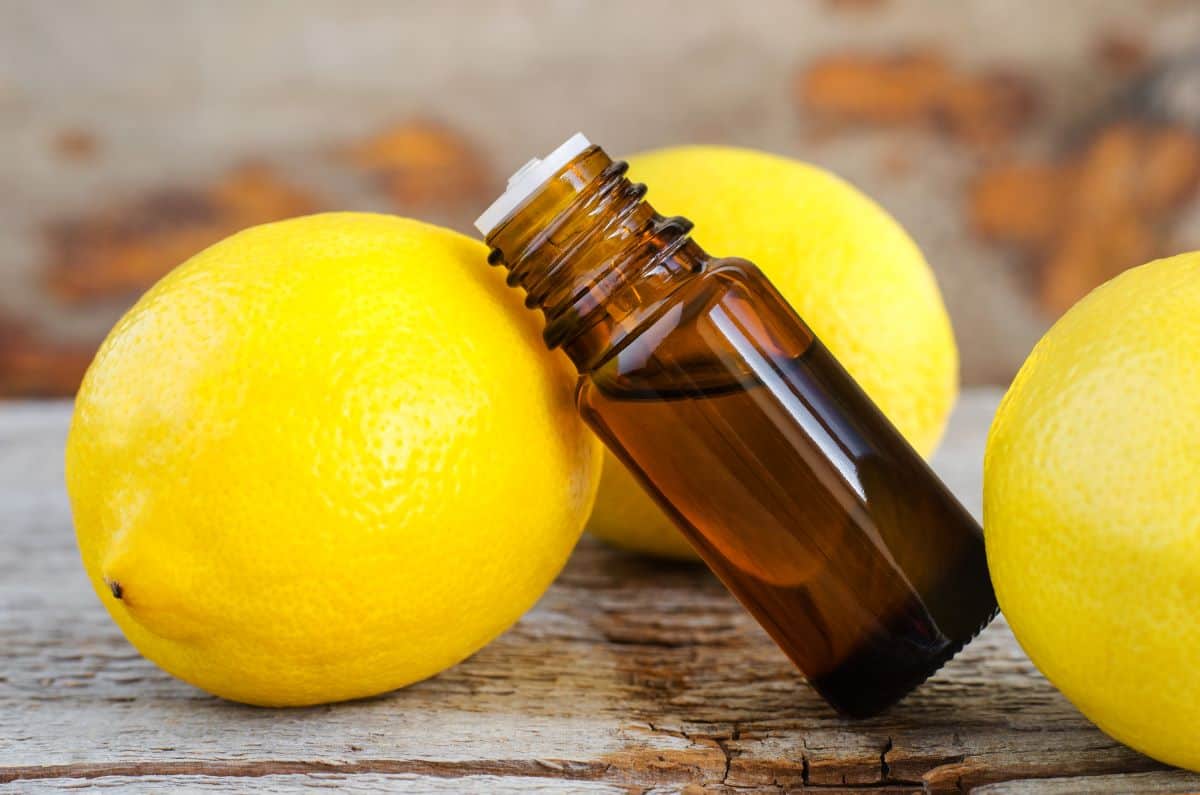
Lemon extract is a highly concentrated lemon flavor commonly found in the baking section. Its strong lemon taste makes lemon extract a popular lemon juice alternative.
It is the best substitute for salad dressings, desserts, baked goods, and cocktails.
Because of its intense taste, only a drop of lemon extract will be needed so make recipe adjustments as needed!
If you need a lot of lemon juice in the recipe, substitute lemon extract with one of the liquid alternatives on this list.
8. Cream of tartar
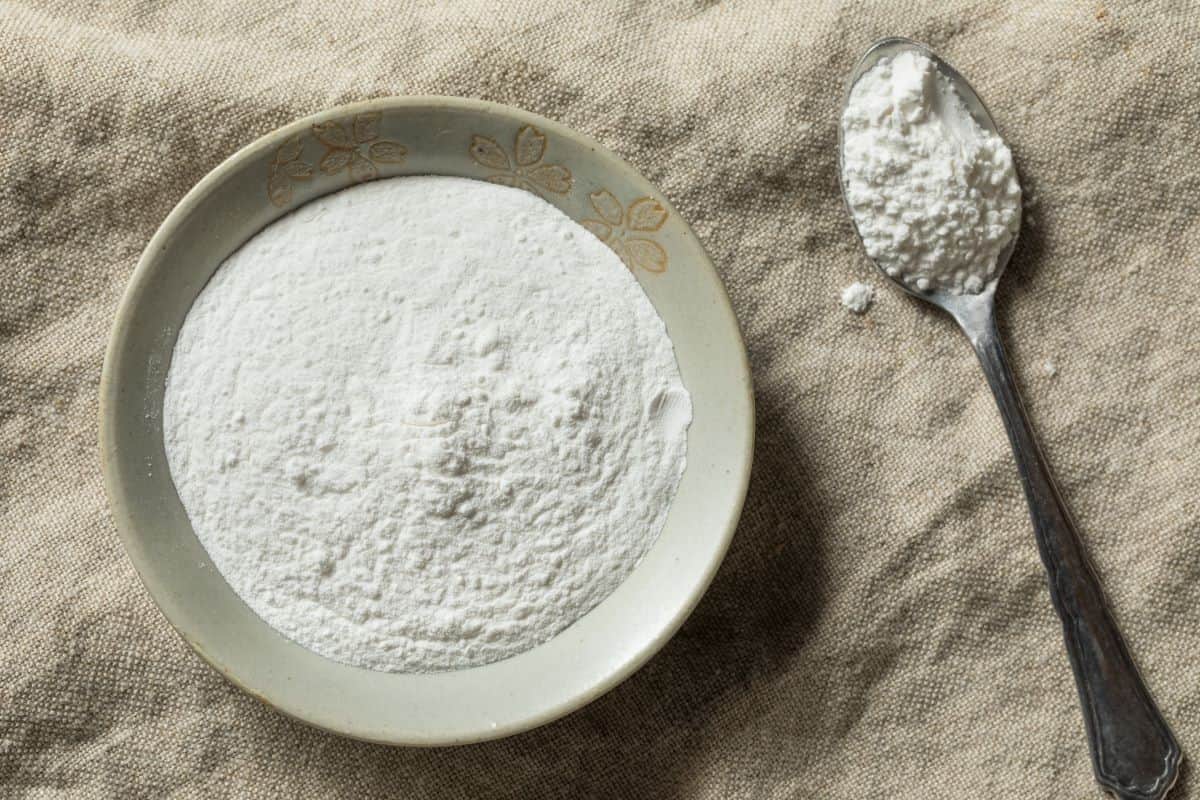
Like citric acid, cream of tartar is an acidic powder sold in most grocery stores. It is found in baking powder (not baking soda), so it is a great substitute in baking recipes like cakes or muffins.
To get just the acidity of lemon juice, cream of tartar is an excellent substitute. Cream of tartar is not recommended in recipes where lemons are used as flavoring.
To substitute cream of tartar with lemon juice, combine ¼ teaspoon of citric acid with a teaspoon of water. Only a small amount of cream of tartar is needed.
9. White wine vinegar
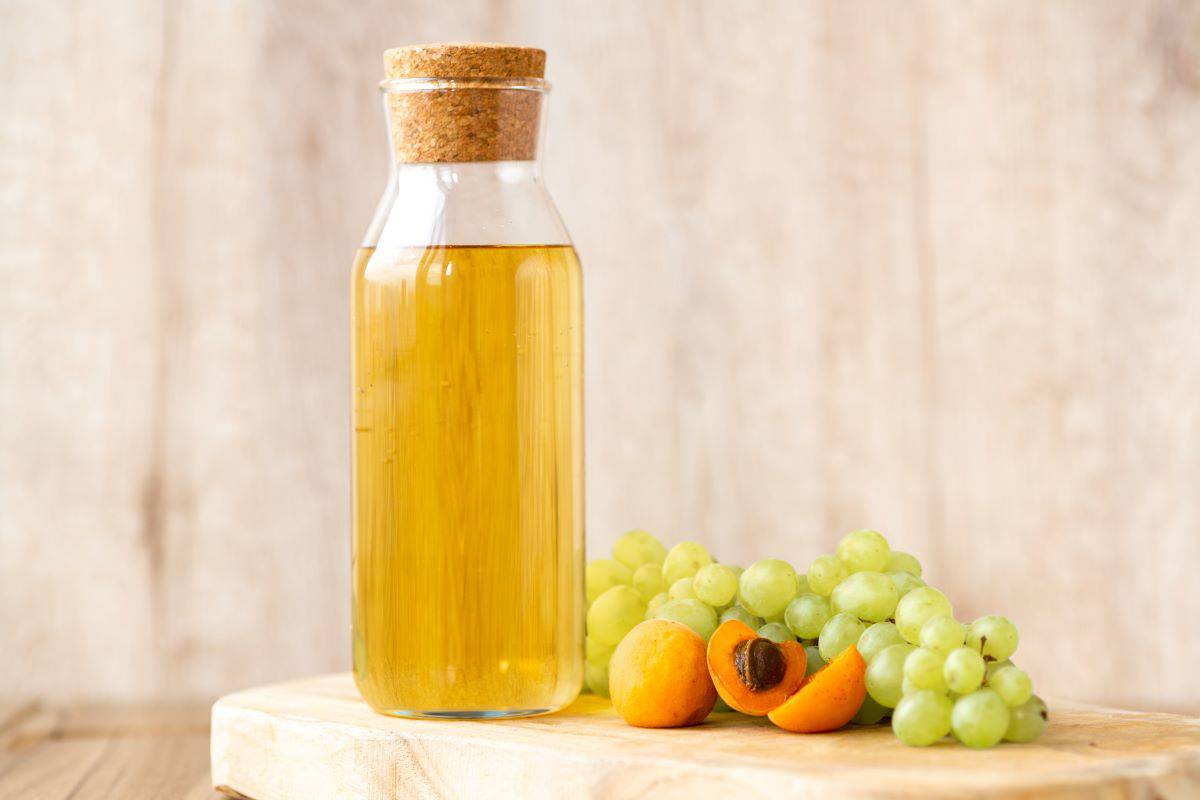
Vinegar has a strong acidic taste, so it’s a popular lemon juice substitute when acidity is needed. However, not all vinegars are the same. Rice vinegar is the better vinegar to use as a substitute, but white wine vinegar will also work.
It has a stronger acidity, but white wine vinegar isn’t overwhelming in flavor. Use it as a lemon juice substitute in salad dressings, marinades, and to deglaze pans.
Replace the lemon juice called for in recipes with equal amounts of white wine vinegar.
10. White vinegar

White vinegar is a decent replacement for lemon juice. It has a similar acidity level to the other kinds of vinegar, but it has a much stronger taste.
This makes white vinegar a suitable substitute when a recipe calls for acidity, but not a lemon taste.
White vinegar is easy to find in grocery stores and is usually the cheapest option. This makes it a great substitute for those on a budget.

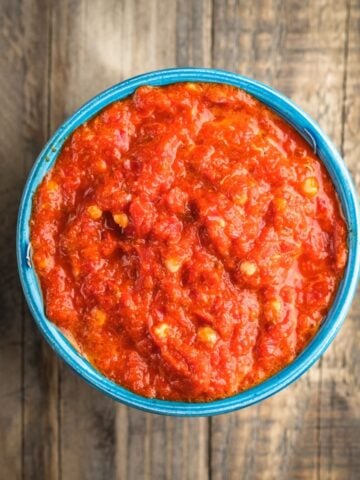

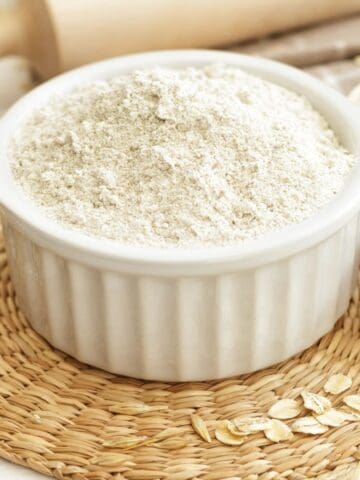
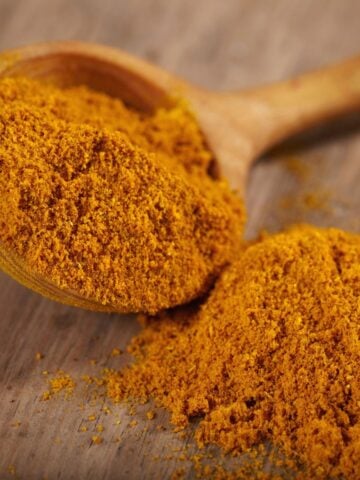
Make my day! - Share your thoughts...